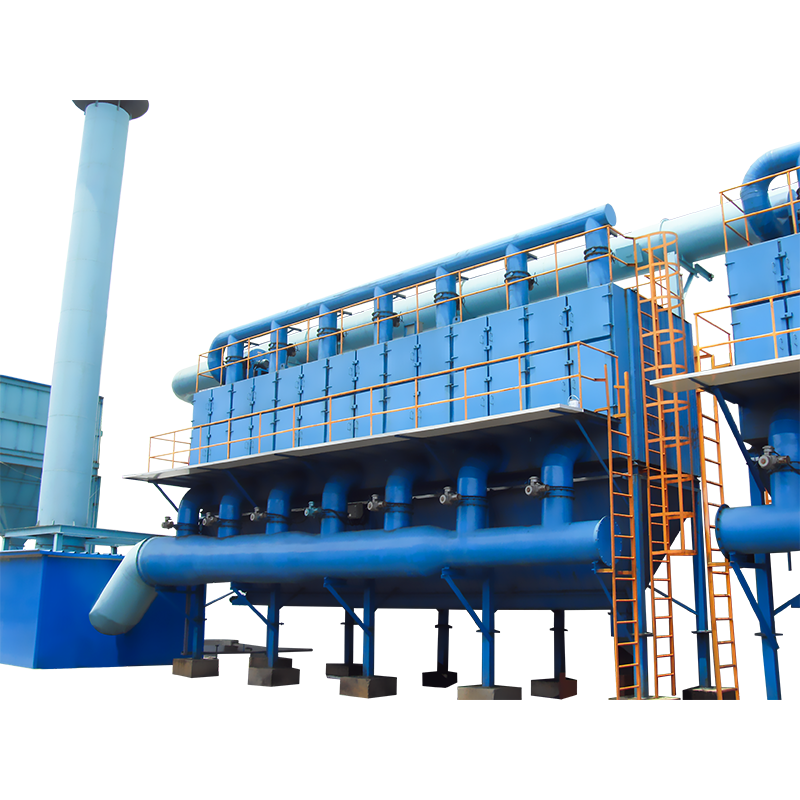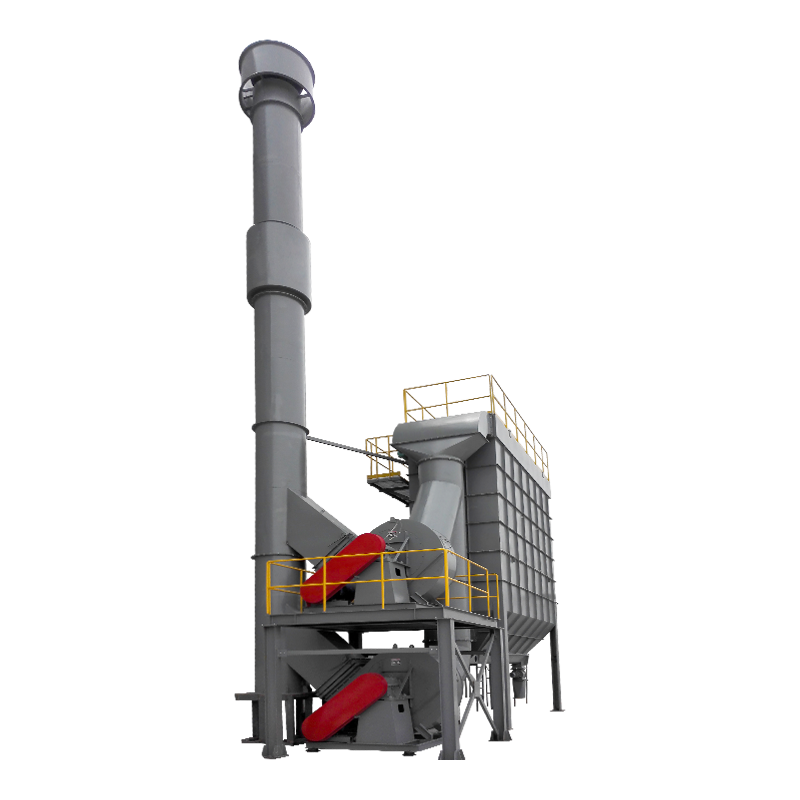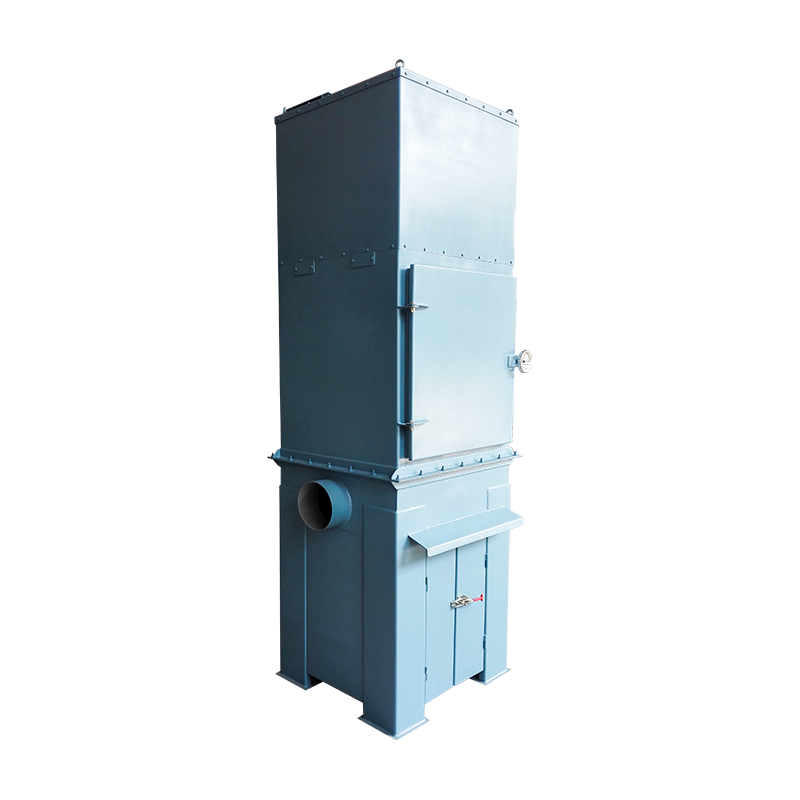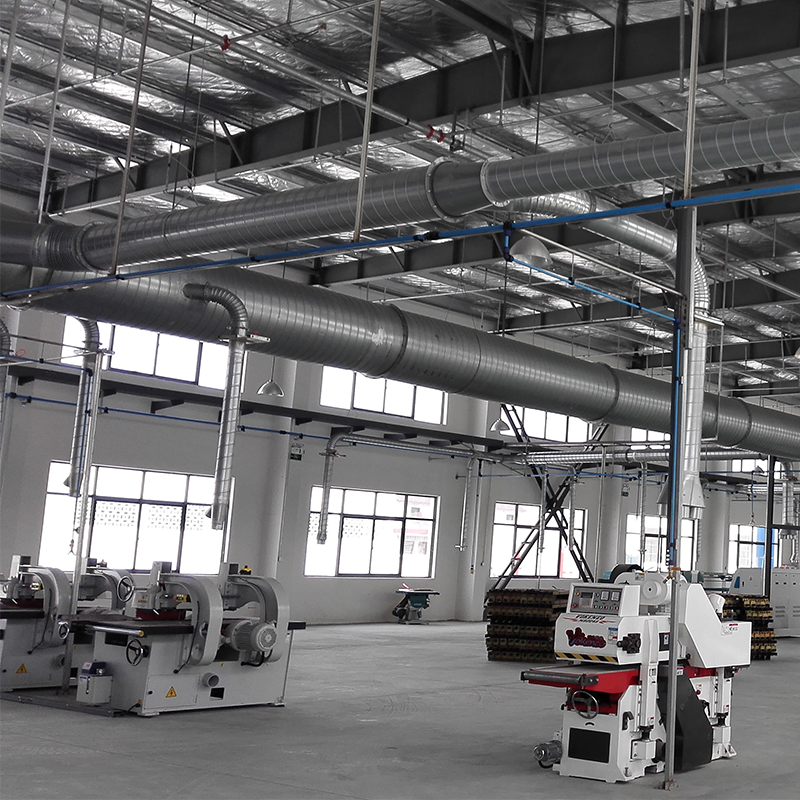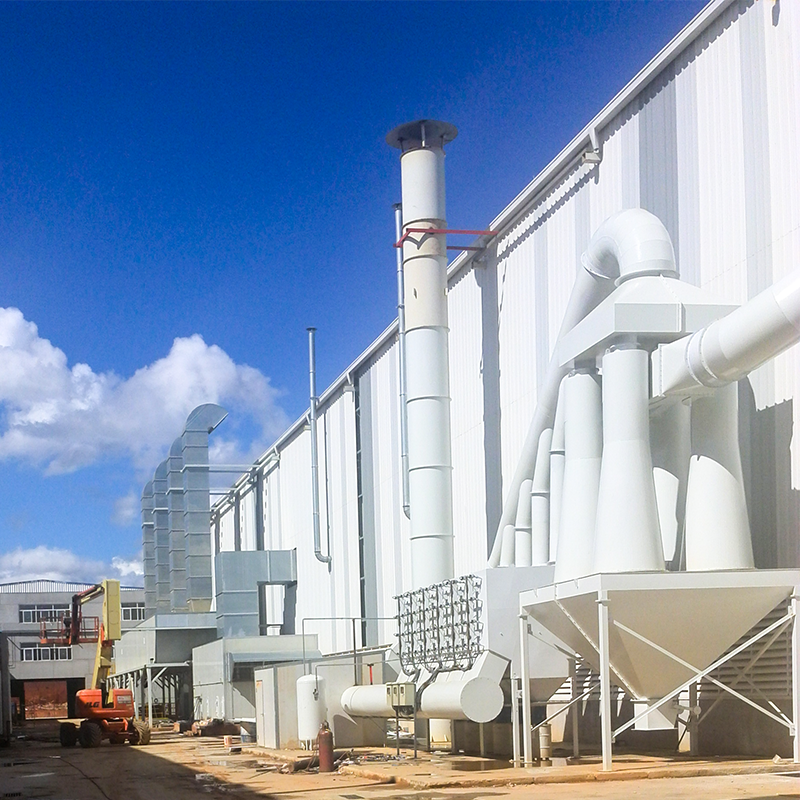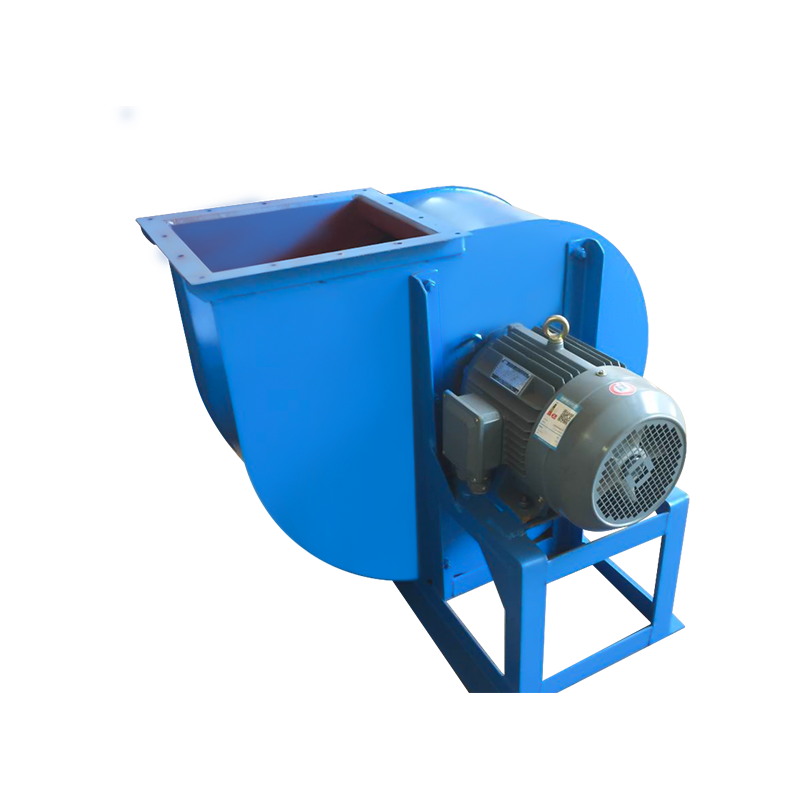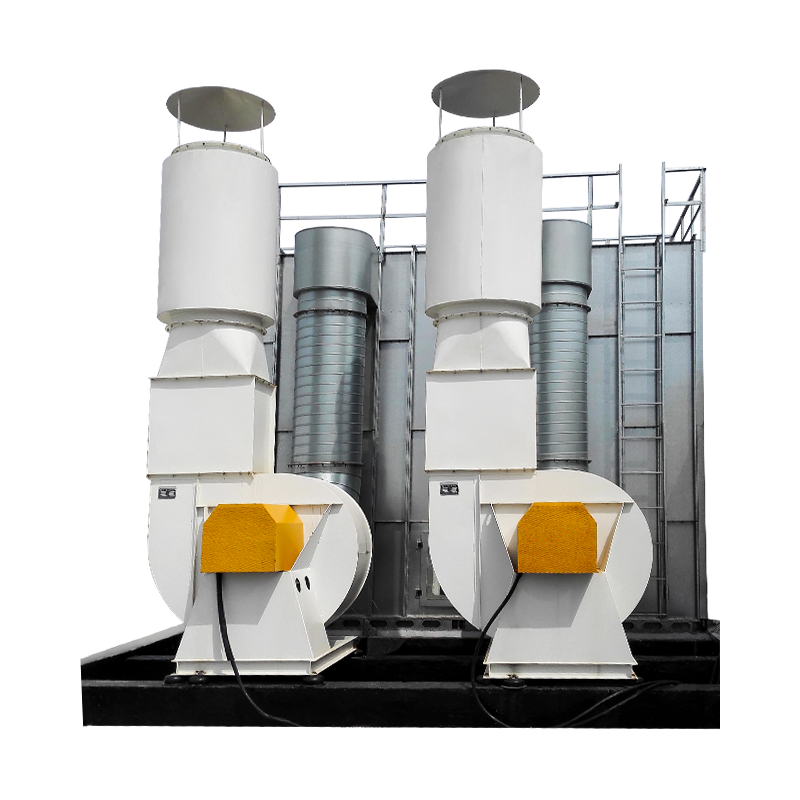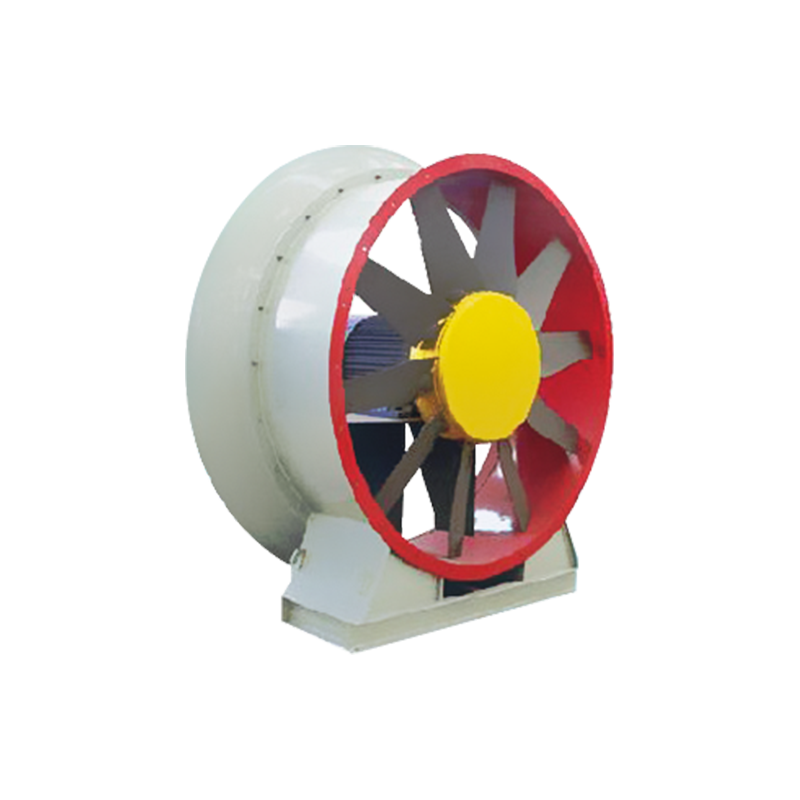In modern industrial production, environmental protection and workshop air quality management have become crucial aspects of business development. As efficient and reliable dust removal equipment, industrial bag filter dust collectors are widely used in industries such as metallurgy, chemicals, building materials, pharmaceuticals, and food processing. Their core function is to effectively collect dust generated during industrial production through physical filtration and airflow control, ensuring a clean and safe working environment while reducing environmental pollution.
Operating Principle of Industrial Bag Dust Collectors
The core principle of industrial bag dust collectors is to utilize the microporous structure of the bag material to separate solid particles from air. Polluted air enters the dust collector through a fan. Initially, a preliminary flow is conducted, causing large particles to settle into the dust collection hopper. The air is then directed through the bag filter layers. Fine dust is captured by the bags, while purified air is discharged through the outlet. Over time, a dust layer accumulates on the bag surface, which in turn further improves filtration efficiency. To ensure long-term, stable operation, bag filters are typically equipped with an automatic cleaning system. This system uses backflow or a vibrating mechanism to regularly remove dust from the bag surface, ensuring continuous, efficient filtration.
Structural Design and Material Selection
The performance of industrial bag filters depends not only on their operating principle but also on their structural design and material selection. Modern industrial bag filters typically consist of a housing, filter bags, a filter frame, a hopper, a fan, and a control system. The housing is typically constructed of corrosion-resistant carbon steel or stainless steel to accommodate the temperature and corrosion requirements of various industrial environments. Filter bags are available in a variety of materials, including polyester, polytetrafluoroethylene, polypropylene, and high-temperature-resistant aramid, depending on the dust characteristics and operating temperature. The filter frame is typically constructed of metal or composite materials to support the bag and prevent collapse or deformation during the filtration process. The overall structural design must balance uniform airflow distribution, cleaning efficiency, and ease of maintenance.
Performance Characteristics and Advantages
Industrial bag filters occupy a vital position in industrial production due to their high efficiency, stability, and wide range of applications. Its notable features include high filtration efficiency, low pressure drop, large air volume, and easy maintenance. High filtration efficiency ensures that even fine dust is effectively captured, helping to improve workplace air quality and reduce worker health risks. The low pressure drop design means the equipment consumes less energy when handling large volumes of air, thereby reducing operating costs. Bag dust collectors can be customized to suit different dust concentrations and properties by adjusting the filter bag area, number of bags, and cleaning method. The equipment's compact and modular design makes installation and maintenance easier, reducing maintenance costs.

Application Scenarios and Industry Needs
Industrial bag dust collectors are used in nearly all dust-generating industries. In the metallurgical industry, they effectively collect high-temperature metal dust; in the chemical and pharmaceutical industries, they handle dust containing corrosive or hazardous components; in building materials production, they collect large dust particles such as cement and lime; and in food processing, they ensure a clean production environment and prevent dust contamination of products.
With increasingly stringent national environmental regulations and businesses' increasing focus on improving their production environments, market demand for industrial bag dust collectors continues to grow. When selecting dust removal equipment, businesses are increasingly focusing on comprehensive performance indicators such as dust removal efficiency, energy savings, ease of operation, and equipment lifespan.
Environmental Protection and Corporate Responsibility
Industrial bag dust collectors are not only production equipment but also crucial tools for businesses to fulfill their environmental responsibilities. The use of high-efficiency dust removal equipment significantly reduces dust emissions, improves air quality, and complies with national environmental standards and industrial emission regulations. Through scientific selection, proper maintenance, and intelligent operation, businesses can not only achieve cleaner production processes but also achieve significant benefits in energy conservation and emission reduction, demonstrating a commitment to social responsibility and sustainable development.
With their efficient dust collection capabilities, flexible adaptability, and intelligent development trends, industrial bag dust collectors have become an indispensable dust removal solution in modern industrial production. Whether in metallurgy, chemicals, building materials, or food processing, they provide businesses with stable, energy-saving, and environmentally friendly air treatment solutions. With the continuous advancement of technology and the improvement of environmental protection requirements, industrial bag dust collectors will play a more important role in future industrial production, creating a cleaner and safer production environment for enterprises and promoting the sustainable development of the industry.

 English
English Español
Español عربى
عربى
